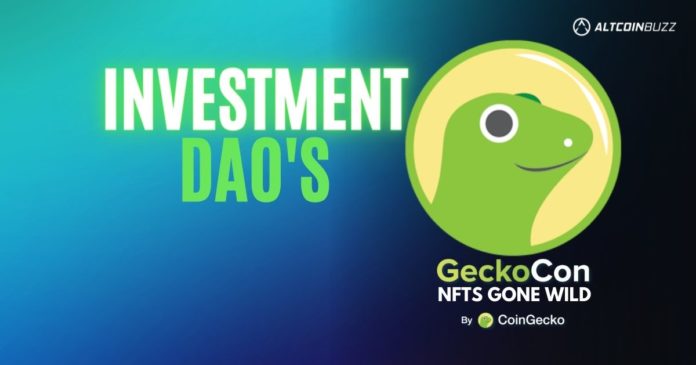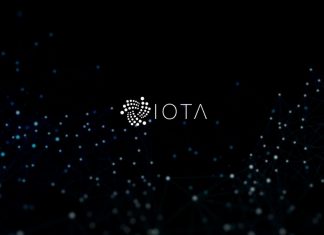Here is the session called “Investment DAOs”. This occurred on the second day of the conference, Friday 15th at 4:00 PM (EST), where we had Mati Greenspan, Founder & CEO of Quantum Economics.
The session discussed the topic of DAOs, how to form DAOs, their vulnerabilities, and what to look for when investing in one. The speakers are:
- Jonathan Allen Core – Contributor at BitDAO
- Ian Lee – Co-founder at Syndicate
- Mike Dudas – Partner at 6th Man Ventures
The Vulnerabilities of DAOs
Panel host Mati kicked off the discussion. He asked the panel about DAO vulnerabilities. Jonathan went first highlighting the social aspects. The idea of having 10,000 people coming together is a great thing. However, the reality is only 20% of the people do the work. Decentralization was also an issue. DAOs are still experimenting with what proper decentralization looks like.
The smart contracts controlling The DAO’s wallet had multiple vulnerabilities. I co-authored a paper called “A Call for a Moratorium on The DAO,” to warn the community that these serious issues would interfere with manifesting of the token owners’ will.https://t.co/jlV8nOl93r
— Emin Gün Sirer🔺 (@el33th4xor) June 17, 2021
Then, Ian stressed that social trust has a role to play. When a DAO grows it can be tricky to have the same core values. Mike mentioned that sub-optimal decisions have big consequences. A situation could arise where 2% of people vote but impact 100% of the people in the ecosystem.
Moreover, the panelists touched on other vulnerabilities. DAOs are prone to strong leaders. Certain folks can influence people because they’re persuasive and charismatic. Voting on trivial things is common. This is where members get consumed in discussion actually taking away the mission of the DAO. Other issues such as tooling and gaps in communication are also common.
Trusting a DAO with Investments
For the next topic, Mati took a question from the audience. It centered around trusting a DAO with investments. Ian gave his opinion first. He spoke about on-chain governance. The technology helps but fully autonomous DAOs can still be victims. Especially if there is a small group of people managing the DAO’s assets. A DAO needs to have good risk management.
Therefore, the people that are participating need to understand the risks. This is true for both themselves and also the DAO as a whole. Mike spoke about transparency and the need for DAOs to communicate to their members. With DAOs that are set up with this transparency removed, their members could be at risk.
How are DAOs Formed
Mati took another question from the audience in attendance. This was around forming a DAO. Mike helped give some advice on this. He said there are different types of DAOs that exist. Before creating a DAO he urged talking to a legal specialist. They can help sort out the DAOs structure. For example, if dealing with real-world things they tend to need operational expertise.
Moreover, an advisory board structure is more suited. Therefore a true decentralized autonomous organization would not be the best structure for this type of setup. He went on to say avoiding individual liability is absolutely key.
Then, Ian added that certain states such as Delaware are better for legal recognition. If a corporate structure is not set up, general partners have unlimited personal liability if something goes wrong. This is the reason most people choose a corporate entity. If you don’t have a corporate legal entity it looks like a general partnership. An LLC is primarily for limited liability protections.
Excited to be moderating a panel @coingecko's virtual conference #GeckoCon on July 15th.
Giving away 10 free tickets now. Please retweet and reply letting me know why you want one. pic.twitter.com/TFtPJJHTQl
— Mati Greenspan (@MatiGreenspan) June 22, 2022
Investing in DAOs
Mati proposed the topic of investing in DAOs. He was intrigued to know what the panel is currently looking at. Mike opened up the discussion by sharing his insights. He looks for really specialized expertise. Specifically networks of people who have unique advantages. Orange DAO is an example, they bring talented applicants to Y Combinator.
Then, Ian is looking for value. The market has pulled back and he is looking at undervalued assets. NFTs or tokens that are on the open market fundamentally have not changed. Yet they are potentially undervalued and have a lot of upsides.
Moreover, Jonathan is looking at technology that preserves privacy. He noted that gaming is looking to be huge but has a lot of noise and only a few will turn out to be diamonds. DeFi is an area that hasn’t gone to plan but it’s still a space that he is looking at.
Things to Look for When Investing in DAOs
Mati took a question from the audience who were looking for pointers when looking to invest in a DAO. Mike suggested:
- Looking at the history of voting within the DAO.
- Ensure there is good forum participation and has good structure.
- Look to see and understand proposal discussions.
- Verify and check if they do what they say they will do.
- Go into discords, and forums, and see how much transparency is there. Get under the hood to see how it works and if it is a good fit for you.
Here is an example of how to find, invest & vote in DAOs on Polygon:
🚨Thrilled to announce that DAOHQ is now partnered with & live on @0xPolygon 💜
Find, invest, & vote in DAOs across the Polygon ecosystem through https://t.co/n32A3RManw! pic.twitter.com/OLeXa1oUWq
— DAOHQ 🌎+🏛 (@dao_hq) July 21, 2022
Then, Ian stressed the need to understand the implications from a risk perspective. Know that all DAOs are not the same. A member should understand if the DAO is fully autonomous and fully decentralized. Therefore, they should also understand the purpose and intent of the DAO. Good DAOs are ones that are more specific and clear. This ensures the DAO is more purposeful and intentful.
Risk of DAOs
The audience wanted to know if a DAO is risky. Jonathan provided some advice on this. He advised the best way to assess risk is to jump in and see that things work. Try to get involved by providing some value. You’ll know if it’s a closed box quick enough.
Then, Mike advised looking for a track record. Looking for things that you are passionate about. Ask questions and understand the reason for a DAO to exist. Assess if there is a commitment to doing something in a truly decentralized community and collectively organized manner.
Conclusions
Mati closed the panel to remind everyone about the risks involved. Diversification is key. He suggested planting little seeds all over the place. Some of them will grow into big trees and some of them may not show anything. When it comes to investing don’t ever pile all your eggs in one basket. Before closing the discussion, Mati explored one last point. He wanted to know what the panel thought about seeing a decentralized government.
Then, the panel agreed that although decentralization has begun we are very far off from seeing a truly decentralized government. For a truly decentralized government, they joked it could take another 2,500 years. The panelists agreed that a hybrid solution is more likely and even that could take a while.
⬆️Moreover, for more cryptocurrency news, check out the Altcoin Buzz YouTube channel.
⬆️Above all, find the most undervalued gems, up-to-date research, and NFT buys with Altcoin Buzz Access. Join us for $99 per month now.




























